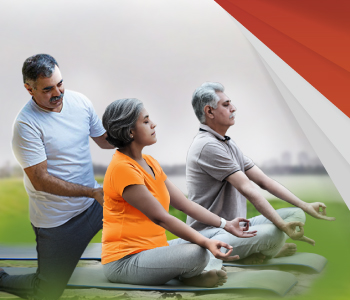

Good physical fitness helps you lead a long and healthy life. Being fit helps you perform physical tasks with ease and enables you to lift heavy weights, walk long distances and perform everyday tasks without much difficulty and pain even as you age. Fitness is often associated with spending time in gyms. You do not need to spend hours at the gym or run long distances to be physically fit. Even 30 to 45 minutes of physical activity three to four times a week can contribute to better health. Simple activities like walking in the park, playing with your kids or pets, gardening, vacuuming or sweeping and taking the stairs instead of the elevator can be enough to stay healthy. Let's explore the importance of physical fitness and its benefits in this article.
Importance of physical fitness
Here are some points that demonstrate the importance of physical fitness in your everyday life:
Increases your life expectancy
Several research studies have confirmed the link between regular physical activity and increased life expectancy. You can prolong your life by staying active and physically challenging your body through exercise.
Reduce your risk of injury
Exercise has been known to improve bone density and muscle strength. Strong bones and muscles contribute to the stability and mobility of the body. By helping you maintain better balance, the risk of injuries and the instances of stumbles decline as you age.
Improve your quality of life
Sedentary lifestyles not only affect your physical fitness but can also impact your mental health. Staying active helps maintain both physical and mental fitness, lowers the risk of certain cancers, prevents lifestyle illnesses and promotes better mental health, contributing to your overall quality of life.
Improve your health
The more physically fit you become through regular exercise, the greater your overall health benefits. Exercise strengthens joints, which supports mobility. It strengthens the heart and enhances cardiovascular health. Regular physical activity also helps stabilise blood pressure levels and lower the risk of suffering from heart disease. Additionally, exercise is known to calm the mind, which reduces stress and supports your mental health.
Benefits of regular physical activity
Here are seven benefits of physical fitness that you must know about:

Exercise controls weight
One of the greatest benefits of regular physical activity is weight management. Exercise helps you burn calories. When your body burns more calories than it consumes, it begins to burn fat, leading to gradual weight loss over time. For those who are overweight, engaging in regular exercise, including cardio and strength training, can effectively help maintain a healthy weight.
Exercise combats health conditions and diseases
Regular physical activity benefits your body in numerous ways. Studies show that exercise can lower high blood pressure and blood sugar levels. It can boost good cholesterol (HDL) while lowering bad cholesterol (LDL). Exercise can also help regulate thyroid levels and manage various other lifestyle-related diseases.
Exercise improves mood
When you exercise, your body releases certain hormones that improve your mood. Exercise increases dopamine and serotonin levels, also known as "feel-good" hormones, and boosts endorphins that trigger positive feelings in the body. This is why you often feel better after a brisk walk or a gym session. Exercise stimulates brain chemicals, leaving you feel calm by reducing your anxiety.
Exercise boosts energy
When the body is stressed, it releases cortisol, which can cause fatigue. Exercise helps lower stress hormones like cortisol, leading to higher energy levels. It also increases blood flow and oxygen throughout the body, which helps you feel more energised. Additionally, regular physical activity improves the quality of sleep, further contributing to enhanced energy levels.
Exercise promotes better sleep
Regular physical activity offers several benefits for sleep. Exercise can help reset your circadian rhythm, making it easier to manage sleep disorders like sleep apnea and insomnia. Therefore, if you are experiencing any sleep disorders, incorporating physical activity into your daily routine may be beneficial for improving your sleep patterns. Additionally, engaging in strenuous exercise can promote feelings of tiredness, helping you fall asleep faster and improve sleep quality.
COMP/DOC/Sep/2024/109/7088
Conclusion
Understanding the importance of physical fitness is vital for everyone, regardless of age, gender or health status. Exercise improves physical health, enhances cognitive performance and boosts emotional well-being. Regular physical activity can help prevent diseases, improve overall quality of life and promote self-reliance. Therefore, finding ways to increase your physical activity, whether through fitness classes or daily activities, is crucial.
